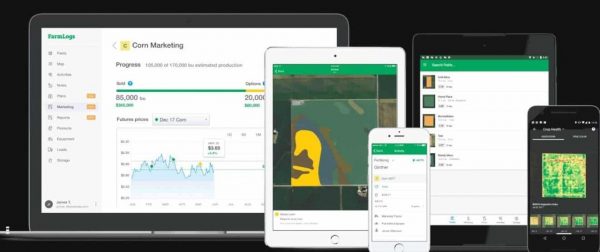South Africa’s Khula has announced a US $1.3million seed round to scale operations across the country. Khula provides small-scale and commercial size farmers with software and a marketplace to grow their business. But this description doesn’t do justice to the painstaking problem Khula is solving. It was founded three years ago by Karidas Tshintsholo, Matthew Piper and Jackson Dyora.
On the surface, it would seem agritech in Africa hasn’t taken off as exponentially as other tech-operated industries. But it has: The agritech sector grew 44% year-on-year between 2016 and 2019, and the continent has the highest number of agritech services in the developing world, reaching more than 33 million smallholder farmers, according to a report from Farmers Review Africa.
“We always wanted something to do something more impactful, something more meaningful, and something that could really change the way that the world works. As time went on, agritech seemed like the path to take due to both founders’ experiences,” said Tshintsholo.
Agritech in Africa
Africa is home to 60% of the world’s arable land. Research also shows agritech in Africa is projected to reach a value of $1 trillion by 2030. But a trip to Israel made Piper wonder why the country — although half of its land is considered a desert — had more agricultural produce than African countries.
“It didn’t make sense that we have more land than any other continent. And pretty much everyone on the continent is a farmer and we’re buying food more than we were selling. We wondered how that was possible, considering how big of competitive advantage agriculture is?” Tshintsholo said.
Further research and spending time with farmers exposed another problem: how intermediaries ripped off farmers in the country. The agricultural industry in South Africa is known to favor industrial agriculture. And like most parts of Africa, smallholder farmers have it rough as they face a plethora of challenges, from marketing and selling to transportation of their goods and produce.
Consignment
Typically, farmers take their produce to a large warehouse where big aggregators pick up the produce and sell it. The problem here is that most products are sold on consignment, which means there are no guarantees farmers will make a sale. The goods, mostly perishable, are also bound to experience drops in price, and there’s a huge lack of transparency, allowing middlemen to rip off farmers.
“This was when we knew that this was a struggle, and this was the problem we wanted to address,” Tshintsholo said. “But then, in addressing that problem, we didn’t go live initially. Agriculture can be very complex. What we have now is something that we call the Khula ecosystem, and this is because the industry is much interconnected,” noted Tshintsholo.
Khula wants to tackle all these issues at once and provide farmers with liquidity, access and a market. The platform is an ecosystem made with three products. The Inputs App allows farmers to access approved agricultural inputs and services from local and international suppliers.









[…] Source link […]
Comments are closed.